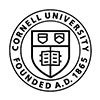Healthcare News
Hand exercises for people with arthritis
Swelling, pain and stiffness in the joints are common symptoms for people with arthritis. If you have arthritis, your health care professional may recommend hand exercises to help you improve joint flexibility and range of motion.
What Causes Neck and Shoulder Pain?
The neck and shoulders are complex and interconnected areas, and medical problems that affect one often affect the other, as well. Pain and dysfunction from injuries or conditions that impact the joints, muscles, and other structures can easily spread from the neck to the shoulder(s) and from the shoulder(s) to the neck.
Osteochondritis dissecans of the knee: What to know
Osteochondritis dissecans of the knee may not cause any symptoms, but some people may experience pain and swelling. Engaging in competitive sports may contribute to its development.
Study of Former NFL Players Shows Race Differences in Chronic Pain
The study, of nearly 4,000 former National Football League (NFL) players, found that Black men reported more intense, more debilitating pain than their white counterparts. They were also more likely to suffer from depression, anxiety or fatigue -- and those problems were often related to their pain levels.
Chondromalica: Causes, Risk Factors, and Prevention
Chondromalacia patella, also known as runner's knee, is a knee condition that can cause pain and grinding when the knee is flexed. It's due to the breakdown in the cartilage on the undersurface of the kneecap (patella) that causes bones to rub against each other. Overuse (especially from running or cycling), trauma, such as a fracture, or a misalignment of the kneecap and femur can all cause chondromalacia.
Allograft ACL reconstruction had higher revision rate in patients younger than 34 years
While ACL reconstruction with an allograft was associated with a high risk of revision in younger patients, it may be an acceptable choice for older patients who are not athletes, according to a presenter here.
10 Best Joint Supplements for Knee Pain, Joint Support, & Cartilage
Joint supplements are natural dietary supplements that help relieve joint pain, protect cartilage, support joint health, and restore range of motion. Whether you have cracking knees, joint pain, or arthritis, taking the best joint supplement can offer natural relief.
Common to Serious Arm Pain Causes
Arm pain can be in the upper or lower arm. You may feel arm pain on the outside of your shoulder. Arm pain can also travel further down the arm toward the elbow.
5 Long-Term Problems After Meniscus Surgery
Although arthroscopic surgery of the meniscus is minimally invasive, you may still experience knee pain after surgery. For some people, other problems can occur after surgery, such as arthritis, re-injury, incomplete rehabilitation, and more.
Ready, set, go: New study shows how marathon running affects different foot muscles
With the current trend of fitness consciousness, many people have taken up long-distance running as a part of their exercise regime. They also participate in various local, national, and global marathons. But marathon running can lead to muscular fatigue and damage in the foot muscles, which can in turn lead to chronic pain or injuries.


















